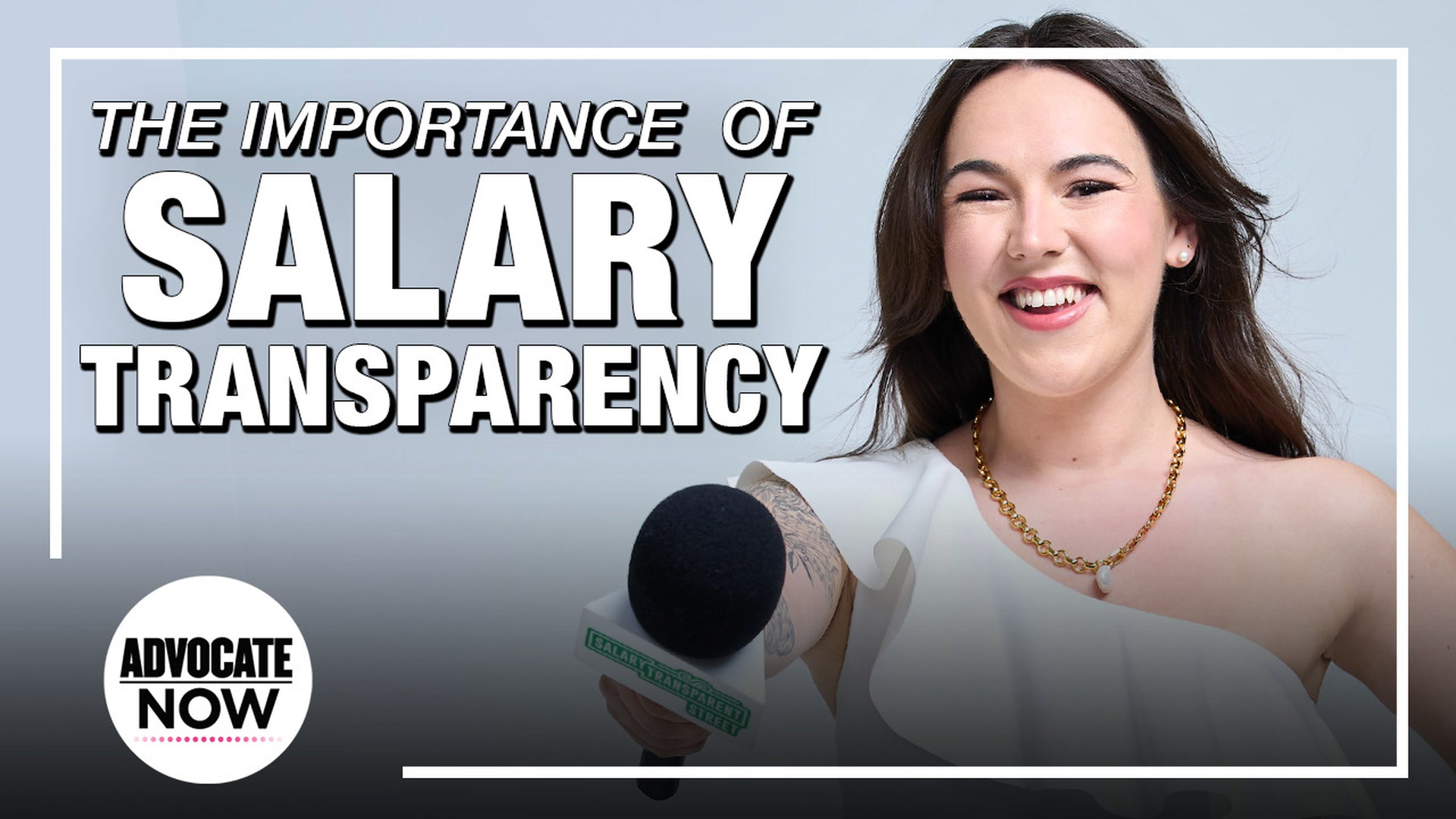If you feel like you're being underpaid, you're not alone.
According to a May report from the Pew Research Center, the gender pay gap hasn't changed in over two decades. In 2022, women earned 82 percent of what men earned, only slightly up from 80 percent in 2002.
Hannah Williams on the Importance of Salary Transparency

While legislation has been passed in 49 states to ensure equal pay, the United States is still falling short of true equity. Hannah Williams, host of the Instagram series Salary Transparent Street, believes there are other laws that states could enact to further bridge the gap, such as salary transparency clauses and salary history bans.
"Salary transparency clauses [mandate] that a company with more than six employees or so has to list a minimum and maximum salary range in their job description," she tells Sonia Baghdady of Advocate Now. "Salary history bans prevent employers from asking about your prior salary, which is a really beneficial ban because if you're if you're interviewing for a new job and they ask for your previous salary, and if you were underpaid before, they're going to keep you at that bottom rate."
Only 22 states currently have pay transparency protections, according to the Department of Labor, but even in areas without such laws, Williams says there are steps workers can take to advocate for themselves. In all states, workers are legally allowed to discuss their payment with their coworkers without repercussions.
"If you are a private employee, you are protected under the National Labor Relations Act, which means that you have the right to discuss your salary with your colleagues," she explains. "The only the only stipulation is that you should not be sharing other people's salaries with other people, only talk about your own and use that as an entry point to have these conversation with your colleague and invite them to share their own salary as well with you."
Through hosting Salary Transparent Street, Williams says her chats with guests from all professions have opened her eyes to just how stark pay disparities can be. She says that having those conversations yourself can be the first step towards achieving fair pay.
"I see gender pay gaps and racial pay gaps play out in real time, which is always a little disappointing," she says. "But it's the reason that we do what we do, and hopefully the thing that we'll fix with our transparency."
For more interviews like these, watch Advocate Now on The Advocate Channel.



















































